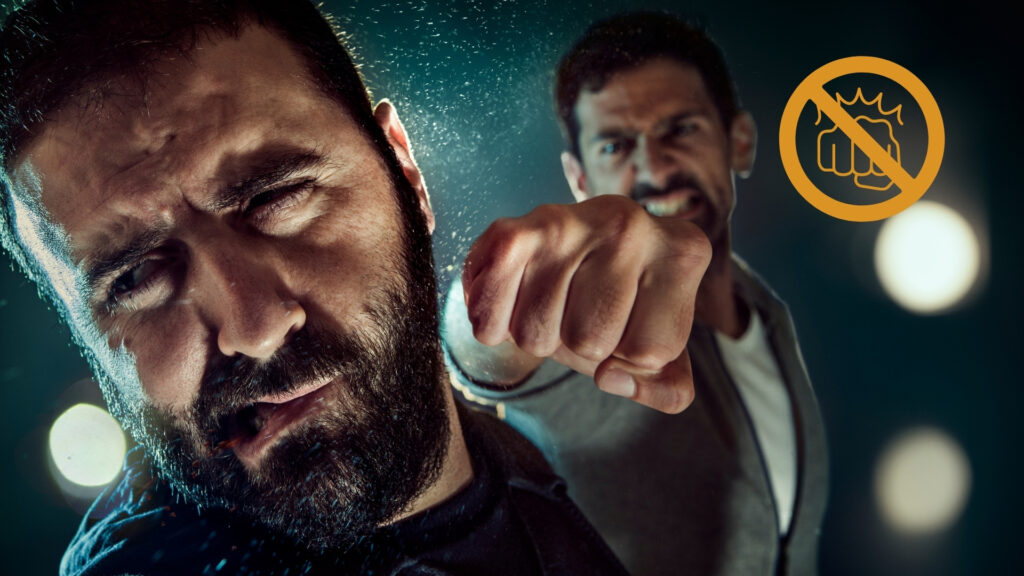Are you aware of the law surrounding one punches? Do you know what to do if you get caught committing this type of crime. The rise of one punch offences has been steep over the past few years, with the deadly act quickly becoming one of Australia’s most unpredictable offences. One punch is all it takes to end a life, no matter the intention, and it is important to understand the seriousness of the matter.

What is a One Punch Offence?
A one punch offence is exactly as it sounds except this particular concept usually refers to a punch to the head. The most severe consequences of such usually being, permanent brain impairments, facial disfigurement or death. A single hit in the wrong location can lead to a lifetime of impairment for the victim as brain damage and swelling can create serious irreversible deficits.
The on the accused due to the impact on the victim can be life imprisonment depending on the circumstances and more often then not, the situation itself was born from one minor mistake. There are very few individuals who set out to intentionally cause harm with their actions and most commonly, one punch incidents are spur of the moment occurrences.
What area of law do i need to consider?
One punch assault is subject to criminal law and as such falls under the Crimes Act. The Crimes Act stipulates both the criteria required and the mandatory minimum sentence as well as maximum penalty that can be received. In order to be found guilty of the offence it needs to be established, beyond a reasonable doubt, that committed an unlawful assault or an unlawful striking of another individual.
If the act caused the individuals death, then you would need to be found guilty specifically of unlawful striking causing death. Essentially, the strike would need to be directly connected with the victim’s death so that you can be held criminally responsible.
There are two types of offences in this area to be considered, assault causing death or unlawful assault causing death. This will be discussed more later as the difference between the two could be critical to your case.
What type of lawyer should i see?
As always, it is essential that you seek legal advice for criminal law offences as the consequences are considerable. A criminal law expert is best placed to help you through the process. A lawyer will be able to advise you of the following;
- Whether you should plead guilty or not guilty;
- Whether you have a plausible criminal defence;
- What weight should be put on any of the evidence against you;
- What punishment you are likely to receive.
In the event that you are unable to find a lawyer or need some assistance immediately, you can contact the National Legal Hotline for legal advice. The national legal hotline is an Australia wide advice service where there is no merit or means test to qualify for assistance. All the advice you receive from the national legal hotline will be provided by a qualified lawyer.

What is the difference between assault causing death and unlawful assault causing death?
The main difference between the two is that one is usually the by product of self defence and one is not.
Can a One Punch cause grievous bodily harm?
Grievous bodily harm occurs when an assault causes serious bodily injury which leaves or is likely to leave permanent damage. It is a serious criminal offence. One punch assault offences can cause grievous bodily harm as such assaults can cause brain injury, facial, head or neck injuries and dislocations or breaks to other bones in the body.
The legal principles cannot be satisfied if the injuries sustained are minor or superficial such as surface bruising like black eyes, but must be linked to tears, breaks, dislocations, etc. One punch laws cover all different types of assault, including domestic violence incidents.
What is a coward punch?
A coward punch is another way of explaining a one punch as it is often an act committed in a moment of fear, weakness or frustration. Personal circumstances often play a role in these situation as a coward punch is usually a random, circumstantial incident.
Criminal offences relating to coward punches are the same as one punch offences.
What factors will be taken into account when determining sentencing?
When a court decides sentencing for an offence there are several factors which are taken into account. Each situation is different however the appropriate sentence is determined based primarily on creating general deterrence within the community. The courts primary focus is on creating general deterrence in the hope that individuals rethink committing the same or similar offences.
An individuals criminal record or prior criminal history will be considered when determining either the minimum sentence versus maximum sentence because it will highlight whether the individual has previous convictions for the same or similar offences. When dealing with one punch assault situations, an individuals criminal defence becomes weakened if they have already been convicted of assault previously. One punch assaults are not considered a socially acceptable activity so they carry a general stigma which is difficult for a criminal defence lawyer to defend. The damage caused by one punch attacks is usually significant and long term.
What is a non-parole period?
A non parole period refers to a period of time either under legislation or imposed by the court that an individual must spend in prison before being eligible to apply for release. Non parole periods are usually half of the person’s sentence however a lot of factors go into determining when parole can be applied for.
Just because you are eligible to apply for parole is no guarantee of being granted parole. Some people apply for parole several times before having it granted or they may never have it granted and be required to wholly serve their sentence. This may means serving several years imprisonment.
Parole periods are often not awarded by the court in such a situation where individuals are serving mandatory minimum sentences as it is required they serve the full sentence. Factors which will be considered by the parole board when considering release are whether the individual has shown remorse for their actions and/ or engaged in rehabilitation programs. The behavior of the individual whilst serving their sentence will also be considered.
What court will my matter be heard in?
One punch assaults are heard in the Supreme Court because they are considered indictable offences. They can sometimes be heard in the local or district court however they are not often classed as summary offences. The Supreme court is subject to trial by jury.
The jury will determine whether the accused is guilty or not guilty however the judge will determine the penalty, i.e. whether the accused should receive the mandatory minimum sentence, maximum sentence or a combination thereof.


